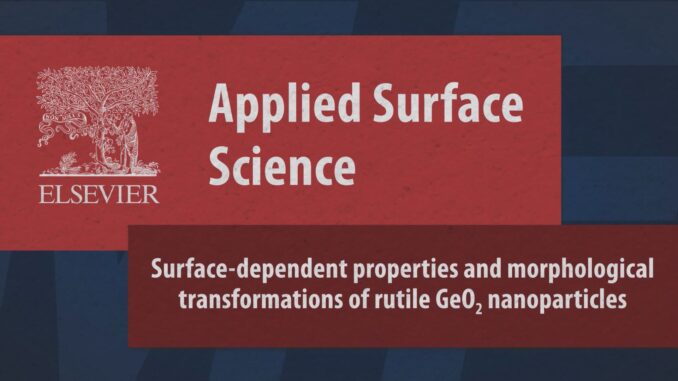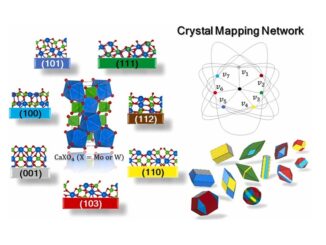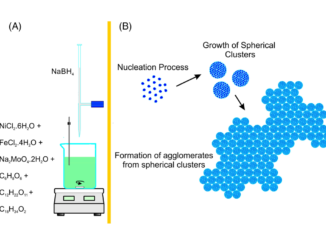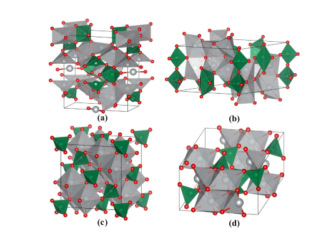
Surface-dependent properties and morphological transformations of rutile GeO2 nanoparticles
Abstract: Recently, the knowledge of surface-dependent properties has attracted a lot of attention since it is crucial for materials functionalization based on the morphological control of nanoparticles (NPs). This study describes the surface-dependent properties and morphological transformation routes of rutile germanium dioxide (r-GeO2) using the density functional theory (DFT) and the Wulff construction procedure. The calculations revealed the following order of relative surface stability: (1 1 0) > (1 0 0) > (3 2 1) > (3 1 1) > (2 0 1) > (2 1 1) > (1 0 1) > (1 0 3) > (0 0 1) > (1 1 1), with the Ge-O bonds being attributed to Ge4p − O2p and Ge4s − O2p interactions. The results demonstrate that the different coordination breakages on the outermost polyhedra are related to atomic charges, band gap, relative stability, and Fermi energy. Additionally, a map of the morphological transformation routes and the band alignment were elaborated, showing that cubic, octahedral, or hexadecahedral morphologies can have photocatalytic activity for H2 production via water splitting. The methodology and results reported herein can help target the synthesis and functionalization of rutile-type materials.
Author(s): Laranjeira, J. A. S.; Azevedo, S. A.; Fabris, G. S. L.; Albuquerque, A. R.; Ferrer, M. M.; Sambrano, J. R.
Applied Surface Science
Published: 30 January 2023, Volume 609, 155321
DOI: https://doi.org/10.1016/j.apsusc.2022.155321
CDMF
The CDMF, hosted at the Federal University of São Carlos (UFSCar), is one of the Research, Innovation and Dissemination Centers (RIDC) supported by the São Paulo State Research Support Foundation (Fapesp), and also receives investment from the National Council Scientific and Technological Development (CNPq), from the National Institute of Science and Technology of Materials in Nanotechnology (INCTMN).




